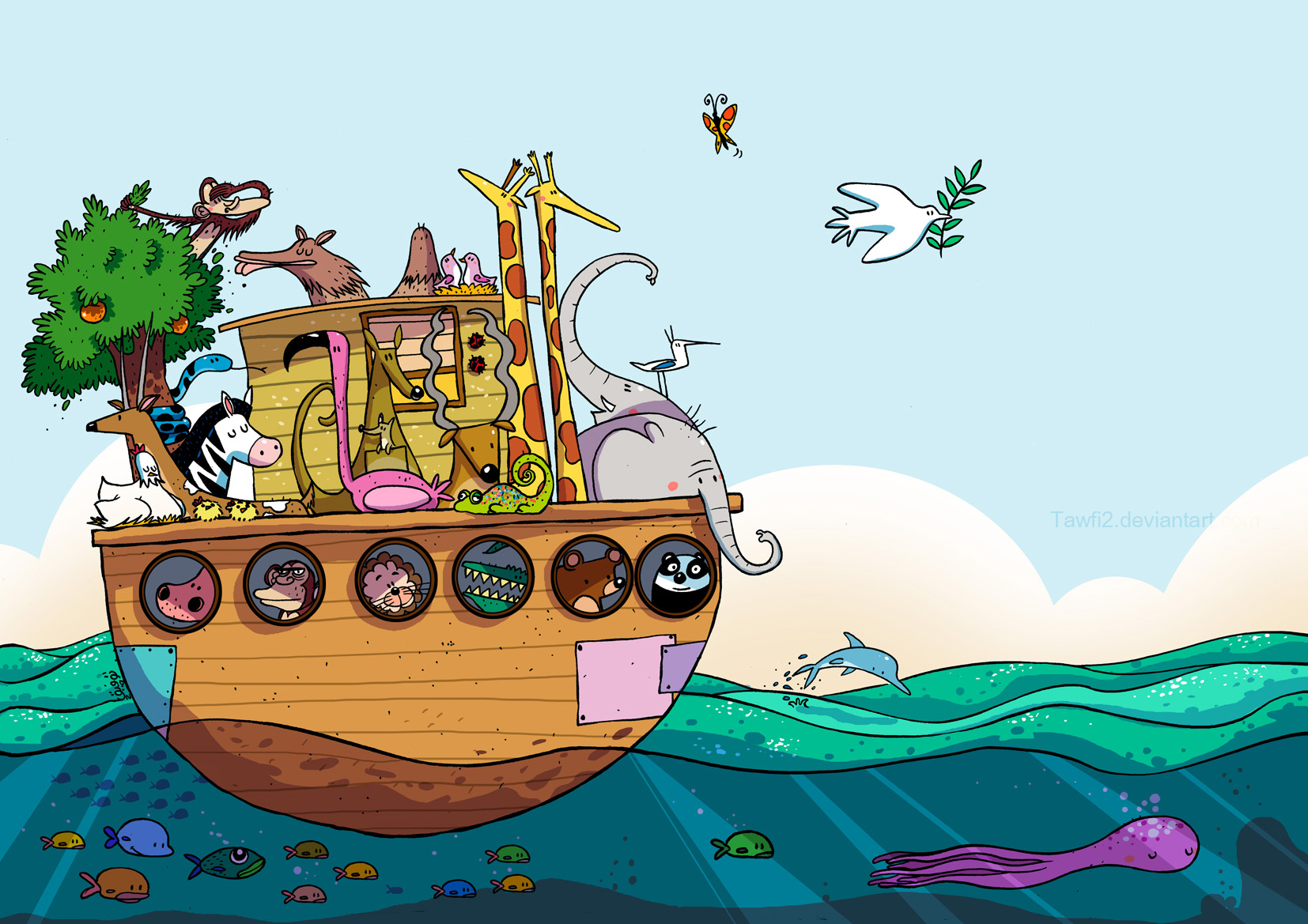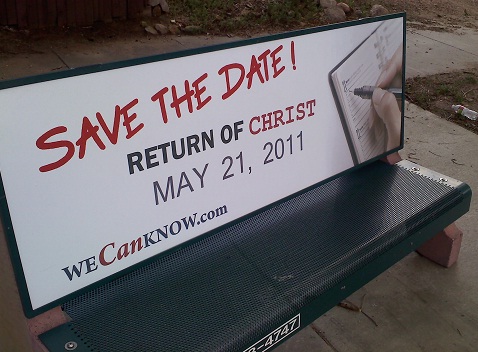Pop quiz: What’s 70 times 7?
No, it’s not 490! It’s the number of times we’re supposed to forgive those who offend us. Oddly enough, more than two thousand years after a profound and rather revolutionary Jewish rabbi taught this lesson, most of us—even those who profess belief in this man’s teachings—still can’t do the math.
Should we blame the teacher? I don’t think so. He delivered his lesson quite clearly and simply. I’m more inclined to believe that the problem lies in the text. It is more than a little confusing, as evidenced by the findings of a recent Gallup poll.
Researchers found that 49% of Americans believe the Bible, the text from which our views of forgiveness are founded, is the inspired word of God. But these same people don’t think it should be taken literally. Clearly, someone’s confused.

The truth and nothing but the truth, so help me...
When did we stop taking Truth at its word? And, I’m sorry, if God inspired texts that can’t be taken literally, what was the point of the divine inspiration? Heck, mere mortals could have simply made up some stuff.
Actually, 17% of the poll respondents think the text was totally man-made, a collection of legends and fables. My guess is that the latter were merely brave enough to say what the 49% were thinking. If we do the math, 66% of us have discovered that the Bible contains information that is untrue, conflicting or incorrectly recorded.
The implications are tremendous. When overlook obvious errors in the text and call it the Word of God, what are we saying about the credibility and trustworthiness of that Word?
Some scholars take this very seriously. For the last 53 years, for example, Orthodox Jewish researchers at a Jerusalem university have been poring over ancient manuscripts, separating the wheat from the chaff. They’re trying to strip the Hebrew Bible down to its oldest and most authentic text. So far, they’ve unearthed evidence that people have been toying with the Bible for centuries. According to a report on this pivotal research called The Bible Project, scholars have concluded that
“This text at the root of Judaism, Christianity and Islam was somewhat fluid for long periods of its history, and that its transmission through the ages was messier and more human than most of us imagine.”
That explains why it took more than five decades for the team to complete a mere three books of the Bible. And we think we’re reading The Word of God.
The messy and human transmission (and let’s not forget tampering) is precisely why I think we can’t wrap our heads or arms around the famous rabbi’s lessons on forgiveness. The tampered text, in not so subtle ways, actually teaches us to be unforgiving.

©2010-2011 ~tawfi2 (Mohammed tawfik on deviantart.com)
As kids, we learn that God does not forgive
One of the earliest stories in the Bible is of the Great Flood. For centuries this alleged genocide has been romanticized, most recently in whimsical children’s books. At a very early age, we learned about forgiveness from this story: The Almighty God, Who could do anything “He” desired, preferred to sadistically “destroy everything living thing” [Genesis 7:4] rather than wave the wand of forgiveness over the humans in “His” creation. Not sure what the animals and plants did to deserve this fate.
Of course, our parents and religious teachers didn’t highlight God’s lack of forgiveness; but it is the unmistakable raison d’être in this ghastly story. Instead, we were served a sugar-coated version of the tale, complete with beautiful cartoons depicting the smiling faces of wild but happy animals patiently prancing onto the ark in a polite queue or peeping out of portholes as if they were on a Mediterranean cruise.
Wait a minute! Portholes? According to the story, God ordered Noah to put only one window in that massive vessel—and, excuse me, it wasn’t in the cargo hold. But happy faces are great subterfuge to keep us from realizing that they were about to suffer a punishment worst than death. What child wouldn’t be horrified by the image of carnivores and herbivores crammed into the same dark space? It was nothing less than a Happy Meal for the predators whose prey had no chance of escaping. If kids could figure that out, certainly God could.
And can we talk about poor Noah and his fam? Those poor folks were not only forced to live with the aroma of wild animals and fecal matter; they also suffered the trauma of smelling the stench and, if they could get to that one window, seeing thousands of bloated bodies—infants, children, adults, the disabled and elderly—floating around them for weeks or as much as a year, depending upon how long it took the water to recede, which depended upon which verse of Genesis you read. If their preservative-free, unrefrigerated food supply could last that long, who in the world could eat under those conditions?
Common sense questions are rarely asked by Believers because thinking and questioning are truly the enemies of “blind faith.” In fact, they are considered heretical. (If you think I’m being sacrilegious, simply pick up the copy of whatever version of the Bible you have right now and tell me how many times the facts change in the Flood story, from verse to verse.) So just in case God really is a genocidal maniac rather than the unconditionally forgiving father of prodigal children, we’ve decided to believe some or all of these stories, even the second major lesson in forgiveness, which is even scarier.
Another Lesson: Forgiveness Requires Suffering
This one’s probably going to make some Christians uncomfortable. The most unforgiving (as in not Christlike) among them might even throw rotting tomatoes into the balcony, dramatically proving my point: Forgiveness is an elementary math problem that we haven’t been able to learn, despite having a Master Teacher. But if we’re ever going to solve this math problem, someone’s got to speak truth to those who would try to control our thoughts and beliefs through fear. Needless to say, the Loud Mouth got the assignment.
Like the Great Flood story, we’ve sugar-coated Jesus’s brutal murder by claiming that he died for us. In this story, as we’ve created it, God’s shows “His” love, mercy and forgiveness in a most peculiar way: God loved “His” bad kids so much that, in the barbaric tradition of those who wrote the story, “He” gave Jesus as a live sacrifice, sending “His” only innocent child to be slowly tortured to death.
We refuse to see that this story, which claims that the only condition under which God would forgive the guilty is by inhumanely brutalizing the innocent, portrays God as satanic. Worse, we promote the idea that if we believe that God placed Jesus in the hands of the sadistic Roman soldiers, “He” will forgive our sins. The cartoon below graphically demonstrates how this principle works.
 Wrong Lessons, Well Learned
Wrong Lessons, Well Learned
And that, Boys and Girls, is why we need a refresher course in multiplication. It’s almost impossible to learn to forgive 70 times 7, as Jesus taught, when we’ve been told for thousands of years that 1) Forgiveness is not really divine and 2) If the Divine forgives at all, there are strings attached. And oh, by the way, sometimes those strings have human blood on them.
Refresher Course is Open if You Are
It’s never too late to learn elementary math, as many have discovered in the transformative Drama Queen Workshops, where we free ourselves from the drama of Earth’s myths—beliefs that portray us as separate us from each other and from the Divine. Let me share the truths that seem to speed the path toward knowing Self, trusting God, and attracting a steady flow of Divine Guidance:
- Life is always fair.
- God is never far.
- Death is not “The End.”
- Absolutely nothing is unforgivable.
Spirit presented them to me as the Drama Queen Workshop Principles. The fourth principle is the most transformative for every Soul. Forgiveness will absolutely change your eternal life, release you from the chains of anger and resentment that have bound you to your offenders since The Beginning. Do we really want to spend time with those who have hurt, disrespected or abused us? The only way to release them is to forgive them.
Forgiveness comes so naturally when we understand the other three DQW principles. When we realize that we are eternal souls that embody the Divine Spark of Love that we call God, Allah or other revered names, it’s easy. When we understand that in a what-goes-around-comes-around world, Life is always fair, it just happens. When we know that we will receive what we give, at the most perfect time in our eternal life, because death of the mortal body is not the end of us as immortal souls, we don’t hold onto thoughts, anger or resentment about what the other person did to us. We know we won’t be held accountable for the way they treated us, only how we treated them, no matter how they treated us. We release ourselves and move on.
We’ve ignored what Jesus reportedly said in most of the New Testament in favor of scriptures portraying Godliness as unforgiving and mortally vindictive. Let’s not turn a blind eye toward “Judge not, and ye shall not be judged: condemn not, and ye shall not be condemned: forgive, and ye shall be forgiven” [Luke 6:37], “Forgive us our trespasses as we forgive our trespassers” [Matthew 6:12] or the unconditionally forgiving father in “Prodigal Son” parable [Luke 15:11-32]. Forgiveness appears as a recurring theme. It is the good news. God is Love is the good news. Love forgives unconditionally: Good news.
Despite these scriptures’ message that forgiveness is something we do for ourselves, we believe we’re doing our offenders a favor. We act as if we are giving them a gift they don’t deserve when, in fact, we are only hurting ourselves. We deny ourselves forgiveness when we withhold it. If we want to our sins to be forgiven, we must forgive others for theirs—as many times as necessary, as many times as we’d want to be forgiven. Yes, even 70 times 7, although I certainly wouldn’t recommend remaining in the proximity of a such a repeat offender.
Hope is alive! Just as we learned when we were agonizing over our multiplication tables, practice makes perfect. Lessons are always easier to learn when they’re fun, so I invite you to download a supply of Forgiveness Coupons from the DQW home page. Make a game of forgiving unconditionally. See for yourself that forgiveness really is divine. And discover, while you’re at it, that you are, too.
I love you!



 Today we laid to rest the body of Troy Davis, whose execution last week stunned the world and attracted more than 1,000 mourners to his funeral in Savannah. Davis’s state-sanctioned premeditated murder exposed our interminably slow costume change from Ardipitheus ramidus to fully civilized human beings.
Today we laid to rest the body of Troy Davis, whose execution last week stunned the world and attracted more than 1,000 mourners to his funeral in Savannah. Davis’s state-sanctioned premeditated murder exposed our interminably slow costume change from Ardipitheus ramidus to fully civilized human beings. It’s no coincidence that Davis came to Earth during a period when electronic communication galvanizes millions in minutes to advocate for a cause. He made us stop whatever we were doing and cry out for justice, compassion and reason. Rallying around this cause reacquainted us with the dormant Divine within our souls. It felt good, it felt right to declare that the man-made law of capital punishment is always a barbaric and inappropriate response in a civilized world.
It’s no coincidence that Davis came to Earth during a period when electronic communication galvanizes millions in minutes to advocate for a cause. He made us stop whatever we were doing and cry out for justice, compassion and reason. Rallying around this cause reacquainted us with the dormant Divine within our souls. It felt good, it felt right to declare that the man-made law of capital punishment is always a barbaric and inappropriate response in a civilized world. One of those laws in real Life is balance. Like gravity, the physical law with which we’re most familiar, balance is in play all the time; it applies to everyone, equally. Balance is the “eye for an eye” undercurrent that flows through real Life. When we create imbalance in our relationships with ourselves and others, the process of restoring that balance naturally begins. It doesn’t require our awareness or effort, much as gravity doesn’t require anything from us.
One of those laws in real Life is balance. Like gravity, the physical law with which we’re most familiar, balance is in play all the time; it applies to everyone, equally. Balance is the “eye for an eye” undercurrent that flows through real Life. When we create imbalance in our relationships with ourselves and others, the process of restoring that balance naturally begins. It doesn’t require our awareness or effort, much as gravity doesn’t require anything from us.

 Wrong Lessons, Well Learned
Wrong Lessons, Well Learned



 We Christians call this Friday “Good;” but it’s the most heartbreaking day on my calendar. It marks the day when we refresh the accusation that God loved His guilty kids so much that He had His only innocent child brutally tortured to death, effectively letting the others off the hook.
We Christians call this Friday “Good;” but it’s the most heartbreaking day on my calendar. It marks the day when we refresh the accusation that God loved His guilty kids so much that He had His only innocent child brutally tortured to death, effectively letting the others off the hook.